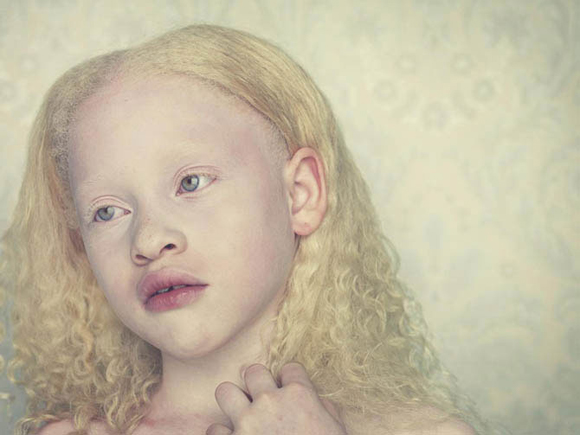Crimson
Antecedents

O Doze Versículos das Freiras
Eu sou um prisioneiro
abandonada na flor
da minha vida
nesta dura cela
Onde eu vou ficar
enquanto eu viver
na dor, sofrimento
e um cativo.
Estou sepultado aqui
onde eu vou manter
morrendo até o dia
em que eu morrer.
Ai de mim . . .
Eu estava feito uma
freira inconsciente
da minha desgraça
Até que eu me tornei
uma mulher.
From the 12 Verses of the Nun, Early 16th Century
~A Spanish Nun
I am a prisoner
abandoned in the
flower of my life
in this harsh cell
Where I will remain
as long as I live,
in pain, suffering
and a captive.
I am buried here
where I will keep
on dying till
the day I die.
Woe is me . . .
I was made a nun
unaware of my misfortune
Until I became
a woman.
But before we can end we must begin. Somewhere, in the tangled web of my life lays the thread that connects it all. Me, Anamaria, Mother Ascètica, Santa Valaria. Catia. Dear, sweet, beautiful Catia . . .
I lie on the small hard shelf that must do as a bed, no position comfortable, but it doesn’t matter. Tomorrow they mean to burn me alive. When such a fate as that awaits what use is sleep or dreams?
But I do dream, in a fashion. In a daze I seem to see it all unfold like a flower before my eyes, each petal firm and fragrant, before it begins to wither, fade, desiccate, and crumble. Who should I pray to in such an hour? Who would hear the prayers of one such as me? And if heard, who would answer?
For the next few hours the past is my future, and I dream it away . . .

The winter that my mother brought me to the Convento do Pano Vermelho was the harshest our people had faced in many, many years. Isolated in a remote valley, surrounded by a dangerous and impenetrable forest, we were cut off from the world and we lived and died by our own hands.
Usually only a few families brought forth their girls before the Sisters on the eve of the midwinter’s moon. From these girls the Sisters would pick perhaps one or two to come live amongst them and become one of them. Their families, of course, were rewarded handsomely, both when they were claimed by the Sisters and then again, when they died. Which many of them did, deep in our dark forest. Protecting our town. Protecting us from the wolves.
That winter, when I was still more child than woman, over a dozen families were standing in the lean sunlight, their faces awash with hunger and despair and twisted with the agony that the poor and desperate often live by: the agony of survival at all costs, even if the price is your child.
I rubbed my hands briskly before tucking them into the tepid hollows under my arms and wished again I had woolen mittens, stockings, and a hat. My mother was standing next to me, shivering, but not so close that we actually touched. I think it was easier for her this way. Either she’d feel the pain of letting me go, never to be anything to her again, or she’d feel the pain of keeping me, which meant death for at least one if not more of my smaller siblings.
One of the tall, narrow doors opened slowly, it’s hinges protesting in a languid wail of ire. From it emerged several sisters, wearing their cloaks of bright crimson, and trailing behind them slightly, the Abbess, Mother Ascètica.
She had a face of defined bone, angled as though a sculptor with a precise, stiff hand had carved it. Weathered, grim, and scarred she took the measure of us all with a flick of her eyes and the corners of her mouth turned even lower with dissatisfaction. For one moment I thought her eyes caught at me but the look was so quick I couldn’t be sure.
One of the sisters stepped forward and surveyed us solemnly. She was the Chooser, blessed with an eye for which girls were trainable and which were not.
A murmuring swelled through the crowd as families began urging their daughters forward. I felt my mother’s small, hard hand prod my back and I stumbled ahead into Josefa, a girl whose family lived near mine. She glared at me as though I had done it on purpose but I only raised my chin higher and made as though she didn’t exist. She turned her face away from me in an angry dismissal and I immediately forgot her as we all shuffled to a stop before the Sisters. While we stood waiting the weak, winter sun gathered itself over the convent walls, illuminating the exact measure of hunger that shaped our expectant faces.
I felt the anguish of those minutes drawn out like a stream of vibrant sensation through my stomach and heart and in my head my voice whispered passionately, “Me, me, me, please choose me.” It’s not that I didn’t love my family. I did. Very much. But being chosen meant food, every day, and warmth. It meant never again knowing deprivation intimately, as the closest of companions. It meant life, salvation. And not just for me, but for my family as well. For my smallest sister, Liana, who was already beginning to wear a hard, world-weary look, with not even a year of life on her back.
The Chooser’s eyes fell to me and me only. My heart began stumbling rapidly. She beckoned and without feeling or reason I began to lift my foot to follow her command.
“No.”
The word rang out harshly in the heavy silence and all eyes turned to the Abbess.
The Chooser and the other two sisters flung their faces towards her in disbelief. No one ever gainsaid the Chooser.
Sister Efigénia recovered herself. “She’s the only one.”
Mother Ascètica turned her vast gaze to me and I realized that my foot was still hanging in mid-step. I brought it down quickly.
“No. She has the look of a traitor about her.”
I blushed fiercely but lifted my face. I have an unusual look, as my mother would kindly put it. My skin was not the beautiful, burnished color of my people nor did I have their dark eyes and hair. My flesh was the color of speckled cream, my eyes the thinnest blue of sky on a hot summer day ringed in dusk, and my hair was the color of wheat bleached long in the sun.
I had received much torment over my complexion but I would not be swayed to tears here. Here I would stand firm. I took a breath to steady my voice to respond, sparing my mother the burden of defending me, though it pained me to speak before so many people.
“I can work hard and I don’t eat much.”
The Abbess’s rigid face fixed even more solidly. “I said no. She won’t do.”
“With all respect, Reverend Mother, it’s not for you to say.”
The Abbess slowly turned to the Chooser whose face trembled for a moment, then firmed.
“So say you?” was Mother Ascètica’s response.
Another sister with a square, white cross around her neck stepped forward. The Sacrist. “So say we all. It is as Leis do Pano Vermelho, the Law of the Red Cloth, decrees. Only the Chooser can say who will be one of us and who will not.”
I sensed a current of wills being tested and though the Abbess finally gave a shallow nod of her head I could see she had not truly acquiesced in the matter. I was sure, one way or another, she would make the sisters standing before her sorry that they ever challenged her so publicly. After she had taken her wrath out on me. Of that I was also certain.
But there was no going back, for any of us, and even the Mother’s downturned mouth of disapproval couldn’t mar my secret anticipation of a full stomach. Or my relief that Liana would live, never again knowing the vacancy of deprivation.
The Sacrist turned to me and beckoned and this time I moved smoothly through the crowd and ignored the sound of the sisters as they began pressing pennies into every hand that waited. My mother would be rewarded with a fat bag of gold. I knew this but did not turn to see.
I wanted to remember her as she was in those last moments of us together: shivering, hungry, anxious. It was a far better memory than the one I would have had if I’d turned around, one that I knew I didn’t want to carry with me into my new life.
I didn’t want to see the great relief mixed with guilt on her face at my going. Her tears of happiness mingled with her despair. That is not how I wanted to remember my mother: she who bore me, and then, out of desperation, gave me away.







